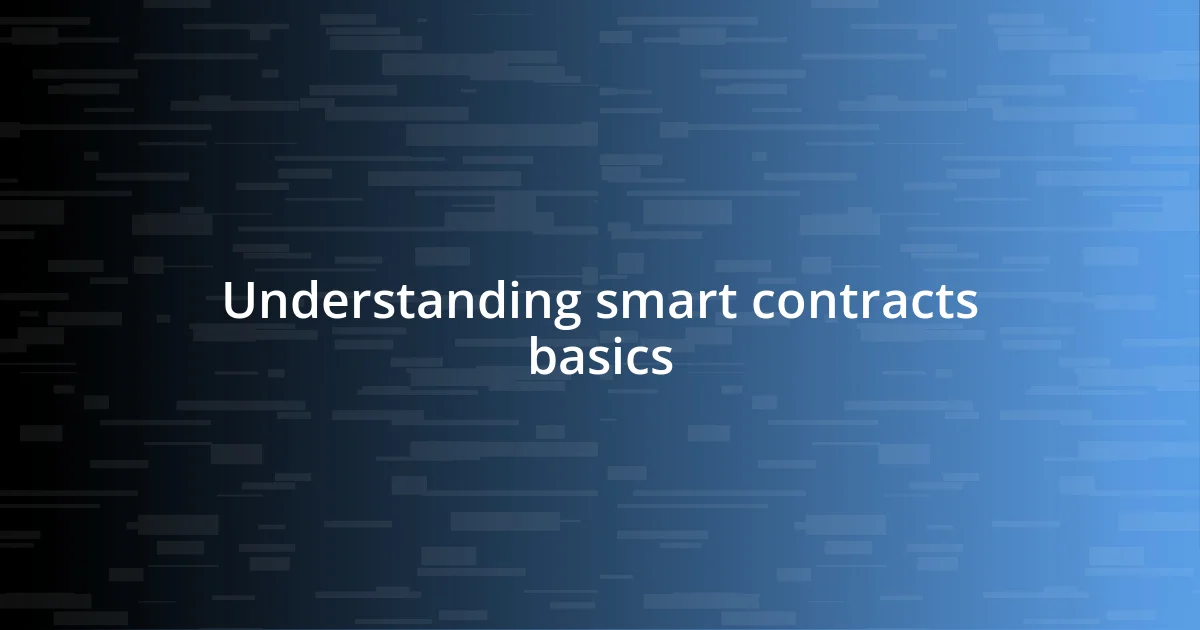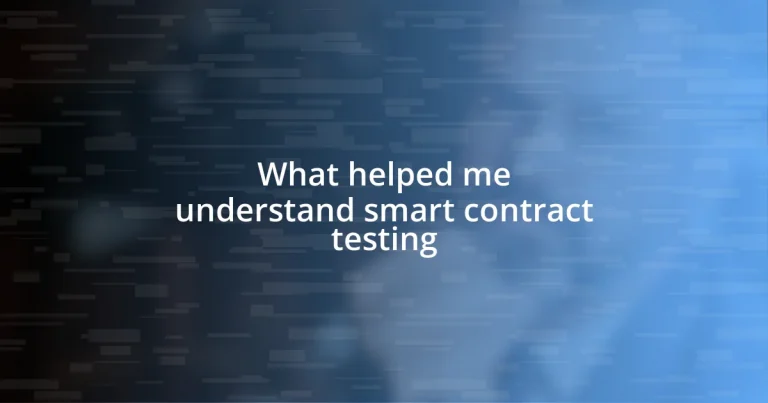Key takeaways:
- Smart contracts are self-executing agreements coded on blockchain, enabling automated transactions without intermediaries, thus saving time and costs.
- They enhance transparency and trust in transactions, as outcomes are dictated by code, minimizing anxiety in significant agreements like real estate deals.
- Careful coding is crucial since even minor errors can lead to serious issues; thorough testing and validation are essential in smart contract development.

Understanding smart contracts basics
I still remember the first time I heard about smart contracts; it felt like discovering a hidden treasure in the tech world. Essentially, smart contracts are self-executing agreements with the terms directly written into code, running on blockchain technology. This means they operate automatically without intermediaries, which can save time and reduce costs—what’s not to love about that?
One of the most fascinating aspects for me is how they bring transparency and trust to transactions. Have you ever felt uncertain about a deal, wondering if the other party will hold up their end? Smart contracts eliminate that concern since the code dictates the outcome. For example, when I worked on a project utilizing smart contracts for a real estate transaction, I saw how it streamlined the entire process, providing both parties certainty without the typical anxiety that can accompany such significant agreements.
It’s also important to note that a smart contract isn’t necessarily “smart” just by virtue of being on a blockchain. It relies on clear, precise coding, and I’ve learned that even a tiny mistake can lead to unintended, sometimes disastrous, consequences. I remember feeling a wave of relief when I double-checked the code before deployment, realizing that a small error can create major issues down the line; this emphasized the importance of thorough testing and validation as fundamental parts of working with smart contracts.














